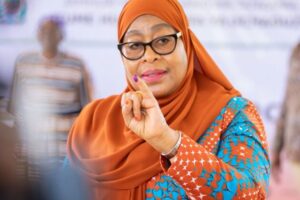
The Chairman of the Health Sector Reform Coalition (HSRC), Dr. Mustafa Lecky, has reiterated the coalition’s commitment to ensuring functional and accessible Primary Healthcare (PHC) services across Kaduna State.
Lecky made this known in his virtual opening remarks at the Kaduna State Stakeholders’ Meeting on Social and Citizens’ Accountability for Primary Health Care Performance (SCAPP), held at the Ministry of Health.
He explained that, despite being out of the country, the importance of the meeting compelled his participation, describing the exercise as timely and crucial in reaffirming stakeholders’ resolve to deliver equitable healthcare for all citizens, especially the most vulnerable.
According to Lecky, HSRC is partnering with BudgIT and the Kaduna State Maternal Accountability Mechanism (KADMAM) under the SCAPP project to strengthen PHC delivery.
The meeting, he said, was aimed at sharing findings from the project—highlighting citizens’ experiences with healthcare services and the functionality of Ward Development Committees (WDCs) which play a key role in advancing PHC at the community level.
“We will highlight success factors as well as challenges and gaps in service delivery and governance. The goal is to foster greater collaboration among all stakeholders—government, development partners, private sector actors, and communities—in pursuit of universal health coverage in Kaduna State,” Lecky stated.
He stressed that PHC remains the foundation of effective health systems, providing preventive, promotive, and curative services closest to the people. Strengthening PHC, he added, would reduce preventable diseases, improve maternal and child health, and enhance resilience against health emergencies.
He called on stakeholders to review findings transparently, commit to concrete actions with clear timelines, and institutionalize follow-up mechanisms to ensure accountability and measurable progress.
Ambassador Onoja, Executive of HSRC and a core member of the SCAPP Implementation Team, warned that Nigeria’s primary healthcare system is in a “comatose condition,” describing it as the weakest link in the nation’s health delivery chain.
“Primary healthcare is the foundation of the health system, and once it is weak, the entire system is compromised,” Onoja stressed.
He, however, commended Kaduna State for making progress through collaborations with HSRC and KADMAM to improve accountability and efficiency. According to him, the ongoing interventions cover about 200 healthcare facilities with the goal of restoring functionality and responsiveness.
“The aim is to ensure that grassroots communities, who form the majority of the population, can access quality, affordable, and reliable healthcare services. Community leaders and residents must take ownership by actively participating, demanding accountability, and asking critical questions where service gaps exist,” Onoja added.
Dr. Biobele Davidson of BudgIT Foundation highlighted the impact of the SCAPP project, funded by the Gates Foundation, noting that it is being implemented in 200 communities across all 23 local government areas in the state.
“The project works closely with community-based structures such as KADMAM and HSRC to strengthen participation and institutional collaboration with local governments and the State Primary Health Care Development Agency (SPHCDA),” Davidson said.
She explained that the project has facilitated over 345 town hall meetings with more than 4,000 citizens, alongside 428 WDC meetings with 5,500 participants. A baseline assessment and gender analysis survey have also been conducted, with service delivery now tracked through the PHCTracka portal, which has received over 36,000 feedback reports from citizens and patients.
Davidson acknowledged persistent challenges, including delays in validated facility-level health data, security concerns in some areas, and leadership turnover in WDCs that have disrupted engagement efforts.
Prof. Clara Ejembi, Vice Chairman of the Health System Strengthening Project and SCAPP Project Lead, underscored the value of community participation, revealing that over 36,000 citizens across 200 wards have submitted feedback on services in 148 healthcare facilities.
In her welcome address, Permanent Secretary of the Ministry of Health, Dr. Aisha Abubakar Sadiq, said Kaduna State currently has more than 1,000 primary healthcare facilities.
She noted that 255 facilities were renovated by the previous administration, while Governor Uba Sani’s administration is working to rehabilitate another 255.
“Our objective is to make healthcare facilities accessible to every community. The government is focusing not only on infrastructure but also on personnel training, drug supply, funding, and improved monitoring and accountability,” Dr. Sadiq said.
She urged communities to complement government efforts by reporting challenges through available platforms, including social media, to enable timely intervention.
The event was attended by representatives of the Ministries of Health, Finance, and Budget, chairmen of all 23 LGAs, as well as traditional and religious leaders, demonstrating the importance of collective action in strengthening the state’s health system.





